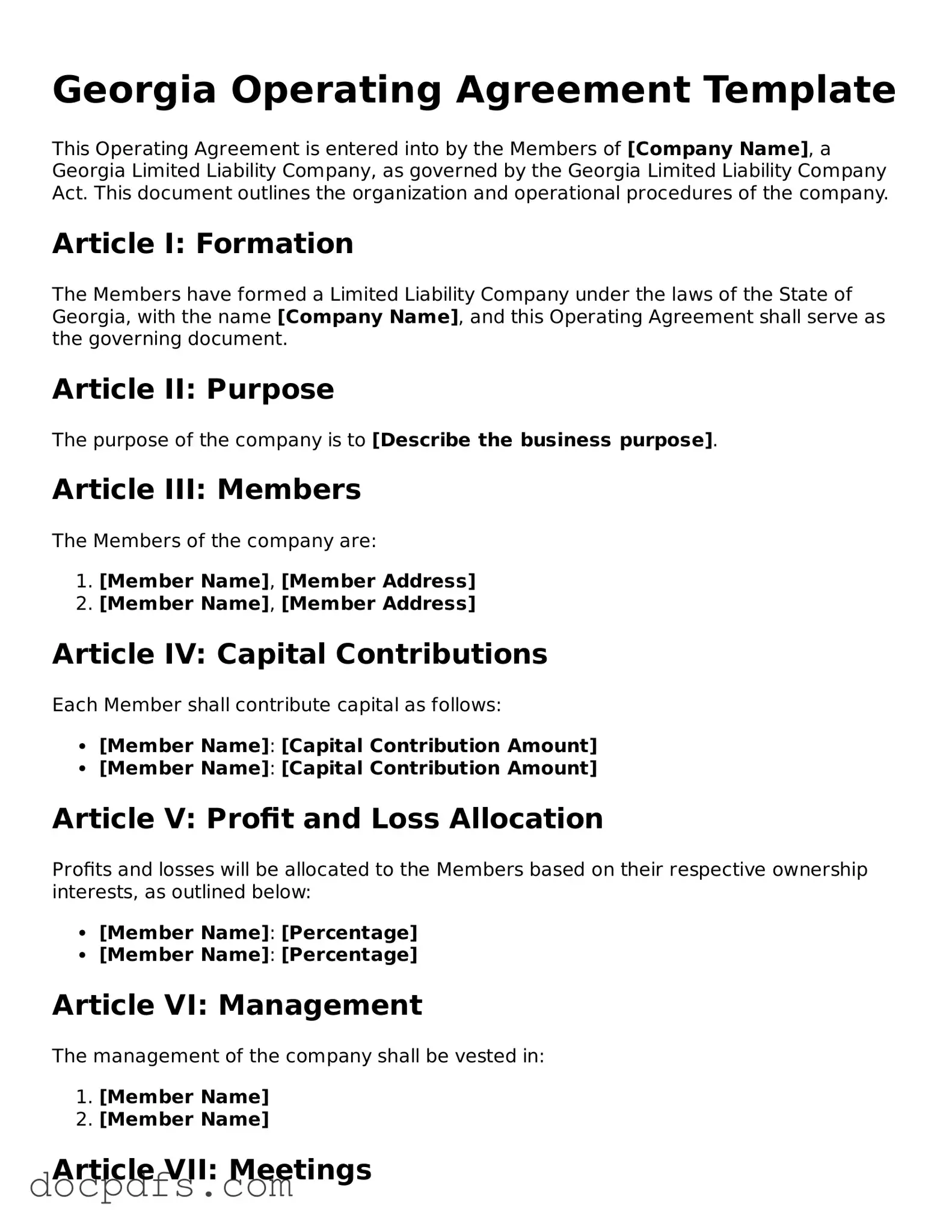Free Georgia Operating Agreement Form
The Georgia Operating Agreement form is a legal document that outlines the management structure and operational procedures of a limited liability company (LLC) in Georgia. This form serves as a crucial framework for the members, detailing their rights, responsibilities, and the distribution of profits. Understanding this agreement is essential for anyone looking to establish a successful LLC in the state.
Open Operating Agreement Editor Now

Free Georgia Operating Agreement Form
Open Operating Agreement Editor Now

Open Operating Agreement Editor Now
or
⇓ Operating Agreement
Finish this form the fast way
Complete Operating Agreement online with a smooth editing experience.